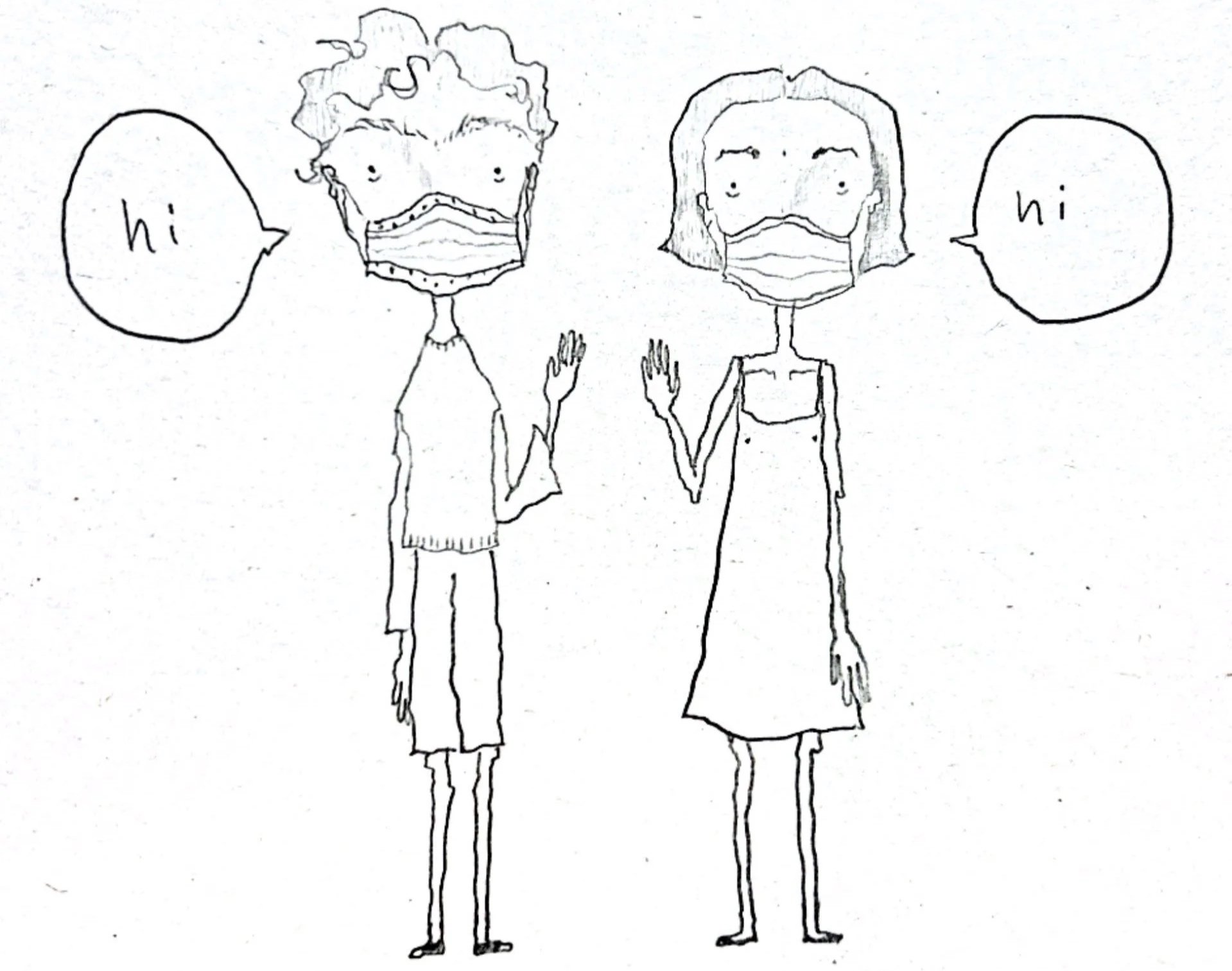What You Owe Your Friends
by Jenny Sequoia, Contributor
We are over five years past the initial COVID-19 lockdown and mask mandates. In that half-decade, the digital space has ballooned into one of the predominant forms of interpersonal interaction. Such enormous sociological shifts come with equally enormous consequences, and the defining consequence of the lockdowns is the present reality of relationships. With almost all convenient forms of communication moving online, people’s relationships have changed dramatically for the worse—with the function of friendship being chief among the affected.
My friend group fell victim to this transformation from primarily in-person affairs to socializing almost entirely online, and it swiftly dissolved our chemistry. As movie nights were replaced by voice calls, I watched people I’d known for years struggle to hold a face-to-face conversation they could’ve easily handled a few months prior. Organically-grown inside jokes would fade in favor of those based on our opinions of internet culture. Not much conversation existed outside of the thing we were doing and the string of references that were made at any given moment. It grew to a point where there wasn’t much of them left outside of their Discord profile pictures and their avatar in the game we were playing that night. Oftentimes they would cease to exist entirely.
In the rare cases in which I would see my friends in person, we wouldn’t fare much better. The standard friend meetup in 2025 often shakes out to this progression of events: First, some form of food or drink. Lunch, dinner, pregaming, whatever it may be. Second, the main thing you came to do. Most likely a movie, a party, or smoking; sometimes all three. Finally, you reach the awkward phase after the main event where you sit around and talk for any length of time, where nothing super interesting is said or accomplished. This formula isn’t foolproof, either. Sometimes the intended main thing was the food, so you awkwardly eat and then part ways without the simple dignity of a three-act structure. The gaucheness of these efforts would become depressingly apparent as I was chauffeuring everyone home. We had spent our time and money being uncomfortable around our friends.
The evident similarity through the few flavors of modern hangouts is a tangible aspect of insincerity. It’s present in posts about “using personality 3 with friend group 5,” which are so bleak they read as collective cries for help. The concept of performing for those we’re supposed to trust being such a universal experience of dehumanization that it can be satirized for attention is harrowing, but glaring at us through the mist. The concept of being there for each other has been overruled by being with each other, the present moment more paramount than whatever it creates. It’s an idea that manifests in the farce of online culture, cultivates through normalized social anxiety, and kills when the people you trust who claim they support you disappear at your hour of need.
I describe this cycle in so much depth in order to implore you to not let it perpetuate in your life. There is nothing more important to our humanity than sincerity, passion, and sacrifice.
I’m convinced that this is not a radical concept, but an aspect of our collective humanity of which we’ve been stripped through generations of systemic oppression under capitalism. We exist in a social setting in which the act of sacrifice is rare enough to warrant a feel-good article. Stories of employees pooling together sick days for a coworker in need are so normalized that they seem cliche. since the pandemic, when socialization took a sharp nosedive into apathy. It has bred a modern social landscape that continually rewards the use of AI, an invention that is entirely inhuman and inhumane. These trends are precisely why empathy is so paramount.
There’s a certain beauty in simply thinking about someone, in the concept of somebody leaving a lasting impact on you to the point that they cross your mind long after they’re gone. It’s a very human act to long for things, but interpersonal desire takes on a different kind of importance compared to that of a conceptual “Home” or the “stability” of a friend group. People are, unlike the conceptual, absolutely real; to the point that they embody other desires. They become your home, they become your happiness. You owe your friends a home more than anything.
Such intense trust built on a long and winding road of experiences, conversations, and mistakes; but the ends always justify the means. When ICE makes their way to your hometown, the AI bubble pops, and you find yourself on the political chopping block, ChatGPT will not fight for you; but your friends and community will. You must do the same for them.

